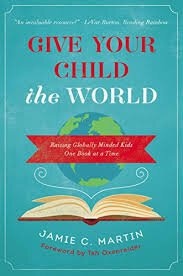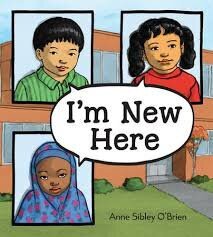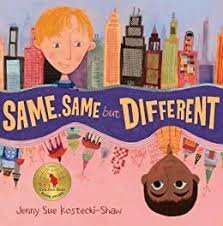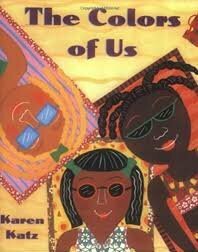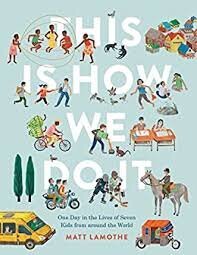Cultivating Diversity for Your Child
Friendship is an important part of every child’s life. The community of peers they develop in their youth shapes both their identity and their perception of the world.
Their early relationships serve as a microcosm, or a small-scale representation, of the world they expect to grow into. Because of this, it matters greatly that children have the opportunity to cultivate diverse friendships.
As caregivers, in some ways, we serve as gatekeepers for the friendships of our children, especially in their early childhood. Although we do not have complete control over their relationships, we do have the ability to introduce or withhold certain relational opportunities from our children. It can be tempting to protect our children from the unknown and strive to primarily introduce them to peers from similar backgrounds. While this desire is not inherently wrong, it may unintentionally limit children from learning about their world through the lens of different perspectives.
Research shows myriad benefits to introducing your child to diverse relational opportunities early on in their development, including:
Improved social and academic development
When children are encouraged to cultivate diverse peer relationships and are given the opportunities to develop such friendships, they show significant improvements in both their social and academic development. In a study conducted in a primary school with a diverse student-body, researchers found that students with more cross-ethnic friendships showed greater ease in maintaining friendships with peers from all backgrounds. These students also showed higher academic engagement and motivation for learning. Although these results indicate correlation rather than causation, it seems that children may benefit in multiple domains from cultivating diverse friendships.
Decreased perceived discrimination and rejection
For children from minority backgrounds, cross-ethnic friendships can serve as a buffer against perceived social discrimination. In the aforementioned study, children from minority ethnic backgrounds with cross-ethnic friendships reported less perceived discrimination and rejection from their peers. Researchers speculated that these children developed greater ease when socializing with individuals of various backgrounds and therefore felt more comfortable in groups outside of their own. Researchers also suspected that cross-ethnic friendships served to elevate the experiences of children from minority backgrounds within their peer groups rather than diminishing their voices through social distance between ethnic groups.
Increased empathy
When children cultivate relationships with peers of different ethnic backgrounds, it provides them with the opportunity to empathize with a variety of experiences outside of their own. As children learn about perspectives and cultures different from their own, they are prompted to place themselves in that experience and empathize with their peers. Although children’s ability to empathize develops as they age, it is important to provide children with relational opportunities for empathy by exposing them to diverse perspectives.
While the literature on the relationship between cross-ethnic friendships and empathy is limited, there is some research to suggest that children with cross-ethnic friendships demonstrate more empathy. In a study conducted in Germany, children with more cross-ethnic friendships displayed greater empathy than their peers with more homogenous friend groups. This empathy may have been fostered by their experience in cross-ethnic friendships. Their empathetic posture may also have been an important factor in their capacity to develop more diverse friendships with their peers.
It is important to note that the posture of caregivers towards groups different from one’s own is incredibly formative to children’s perspectives on cross-ethnic friendships. One of the best ways children learn to behave socially is by watching their caregivers. If they observe their caregivers modeling a posture of welcome and empathy towards individuals of different ethnic backgrounds, they in turn are more likely to embody the same approach towards their peers. Therefore, it is important that we as caregivers intentionally cultivate diverse friendships in our own lives as we encourage our children to do the same.
A note on tokenizing
Before we explore ways to intentionally cultivate opportunities for our children to develop diverse friendships among their peers, it is important to address the dangers of tokenizing. Whatever our ethnic background, we should not seek friendships solely to perpetuate the appearance of valuing diversity. Rather, we should seek friendships with others because their unique experiences and identities matter to us on a relational level. They should not be a means to fill a box on our moral checklist; instead, deep friendships with a variety of diverse individuals should be seen as a privilege worthy of honor, respect, and authenticity. It is important as caregivers to model this in our relationships so that our children can learn to relationally embody this posture as well.
With that in mind, here are some ways to cultivate diverse friendships for and with your child:
Befriend families of different ethnic, cultural, or religious backgrounds
The first step to cultivating diverse friendships for you and your child is to go out and get to know your neighbors and families in your community. You may want to reflect on what your community looks like now:
Are you mostly in relationships with families who look and think like you?
What voices are you missing in your existing community?
What are ways you can intentionally seek authentic relationships with neighbors of differing cultural backgrounds?
And how can you personally cultivate a posture of listening and empathy so that you can elevate voices of BIPOC in your community?
If your community currently looks more homogeneous than diverse, brainstorm some ways you can step outside of your community to get to know individuals and families you may not have otherwise met. Think of local businesses owned by BIPOC that you can frequent with your family, and make an effort to get to know the staff. You may also want to think about the families at your kids’ school. Are there new families that you could invite over for dinner? What families in your school are usually left out of conversations on school policy and planning? Reach out to these families. Let them know you see them and that you value their presence and voice in your community.
Take your children to cultural events around your city
This step may look different now as we are still practicing social distancing; however, when things do start safely opening up, keep your eye out for events that celebrate different cultures around your city. If you are unsure of how to find such events, look for local agencies or organizations in your area that serve specific communities, such as a cultural center for Mexican Americans or your local neighborhood mosque. Reach out to the administration of these organizations and ask how you and your family can participate or help with upcoming events, such as festivals or potlucks. You may want to pick one organization to serve regularly as a family so that you can better connect to the communities those organizations serve.
Read books that highlight diverse stories
A great way to foster empathy in your child is through reading stories that elevate the voices and experiences of BIPOC. Reading these stories regularly with your child places them in an experience outside of their own in a developmentally appropriate way. It also normalizes other perspectives and can teach your child to welcome their peers from cultural backgrounds different from their own. Check out our Bibliotherapy Guide for suggestions with a counseling theme.
Below are a few books we selected that you can read with your child to introduce them to diverse cultural perspectives:
References:
Bagci, S. C., Rutland, A., Kumashiro, M., Smith, P. K., & Blumberg, H. (2014). Are minority status children’s cross‐ethnic friendships beneficial in a multiethnic context? British Journal of Developmental Psychology, 32(1), 107–115.
Graham, S., Munniksma, A., & Juvonen, J. (2014). Psychosocial benefits of cross‐ethnic friendships in urban middle schools. Child Development, 85(2), 469–483.
Jugert, P., Noack, P., & Rutland, A. (2013). Children’s cross-ethnic friendships: Why are they less stable than same-ethnic friendships? European Journal of Developmental Psychology, 10(6), 649–662.
Kawabata, Y., & Crick, N. R. (2015). Direct and interactive links between cross-ethnic friendships and peer rejection, internalizing symptoms, and academic engagement among ethnically diverse children. Cultural Diversity and Ethnic Minority Psychology, 21(2), 191–200.


